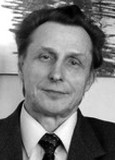Variations in students' visual perception of gymnastic movements and their ability to quickly grasp the concept
Keywords:
physical exercises, training, individual differences, abilities, perception features.Abstract
Objective of the study was to analysis of the variations in how students perceive gymnastic movements visually and the time it takes for them to form an impression of these movements.
Methods and structure of the study. The chosen model was to create a mental image of a relatively simple physical activity. This was achieved by presenting students from the Faculty of Physical Education (n=188, aged 18-23) with a series of images that depicted the different phases of the movement. The subjects were asked to form a holistic mental image of the physical activity. The study was conducted using the tachystoscopic method, which involved two stages. The first stage involved gradually increasing the duration of the display of the object, allowing the subjects to perceive and identify it. The second stage involved repeatedly displaying the object for a fixed duration, which corresponded to the duration of the physical activity.
Results and conclusions. It is evident that the extent to which individuals differ in their ability to quickly create a mental image of a visual stimulus is influenced by both the method of presenting the stimulus and its complexity for comprehension. The identification of variations in students' visual perception of gymnastic movements and their capacity to swiftly grasp the concept of these movements can be viewed as a multifaceted human capacity for rapidly forming a mental representation of a motor action.
References
Belyaev R.V., Kolesov V.V., Menshikova G.Ya. et al. Issledovaniye individualnykh osobennostey vospriyatiya izobrazheniya pri pomoshchi fraktalnogo analiza trayektoriy dvizheniya glaza. V International Conference on Cognitive Science. Kaliningrad: Kaliningradskiy gosudarstvennyy universitet, 2012. pp. 242-243.
Bruner Dzh. Psikhologiya poznaniya. Moscow: Progress publ., 1977. 412 p.
Zaporozhets A.V. Vospriyatiye, dvizheniye, deystviye. Psikhicheskoye razvitiye rebenka. Moscow: Pedagogika, 1986. Vol. 1. pp. 119-153.
Ilyin E.P. Psikhologiya individualnykh razlichiy. St. Petersburg: Piter publ., 2010. 704 p.
Lakin G.F. Biometriya. Moscow: Vysshaya shkola publ., 1990. 350 p.
Nikolaev I.V., Solomatin S.V. Funktsii i kategorii didaktiki v sfere fizicheskoy kultury i sporta. Sbornik nauchno-metodicheskikh rabot «Teoriya i metodika fizicheskoy kultury, sporta i turizma». St. Petersburg: SPPU Petra Velikogo publ., 2021. pp. 60-63.
Rubinshteyn S.L. Osnovy obshchey psikhologii. St. Petersburg: Piter publ., 2002. 720 p.
Salnikov V.A., Revenko E.M. Individualnyye osobennosti vozrastnogo razvitiya dvigatelnykh i intellektualnykh sposobnostey. Psikhologiya cheloveka v obrazovanii. 2019. Vol. 1. No. 4. pp. 341-350.
Samoylenko E.S., Basyul I.A. Individualnyye razlichiya v vospriyatii skhodstva izobrazheniy lits i kharakteristiki okulomotornoy aktivnosti. Eksperimentalnaya psikhologiya. 2019. Vol. 12. No. 3. pp. 73-91.
Teplov B.M. Trudy po psikhofiziologii individualnykh razlichiy. Moscow: Nauka publ., 2004. 440 p.

Additional Files
Published
How to Cite
Issue
Section
License
Copyright (c) 2025 Theory and Practice of Physical Culture

This work is licensed under a Creative Commons Attribution 4.0 International License.
